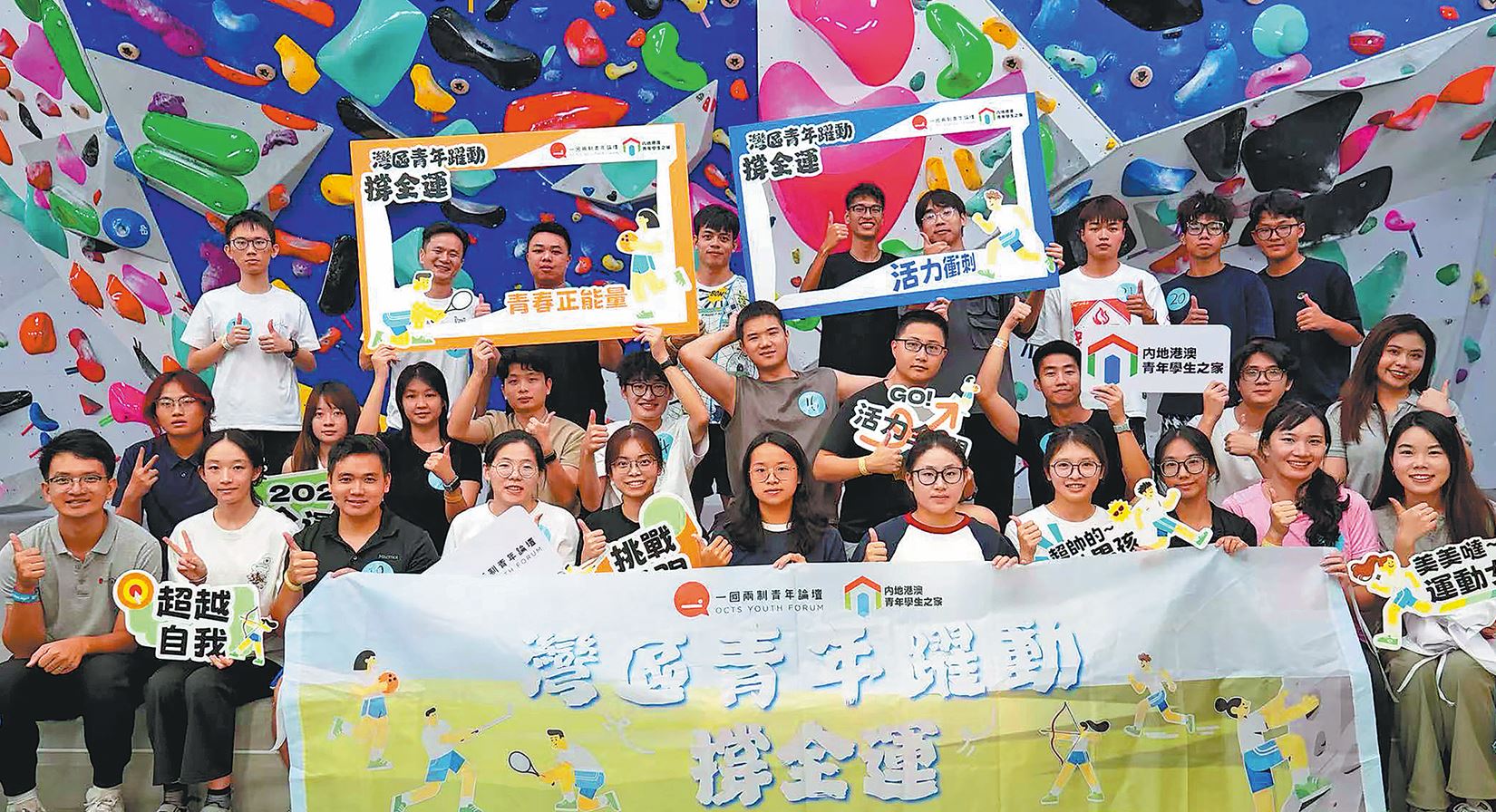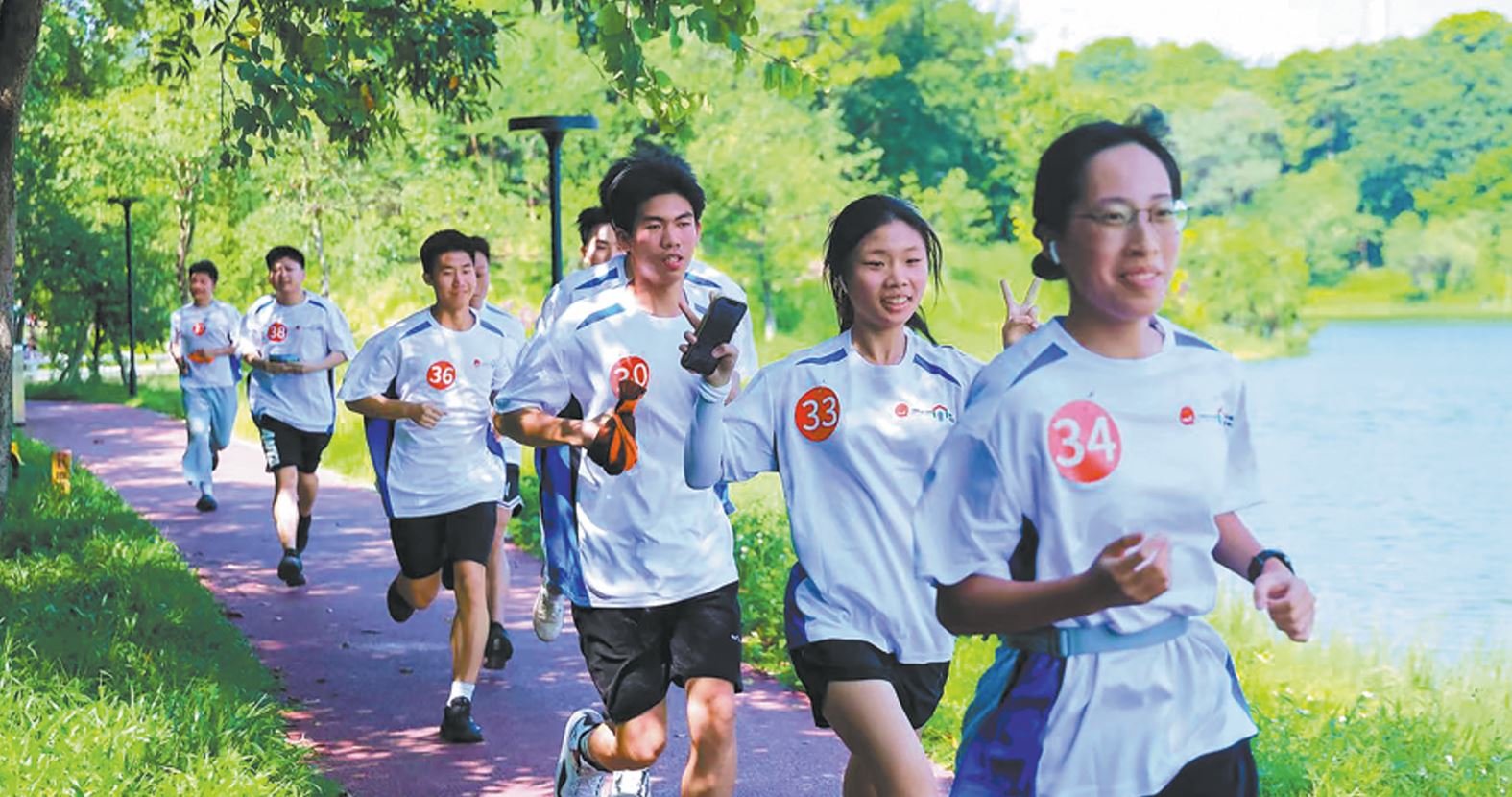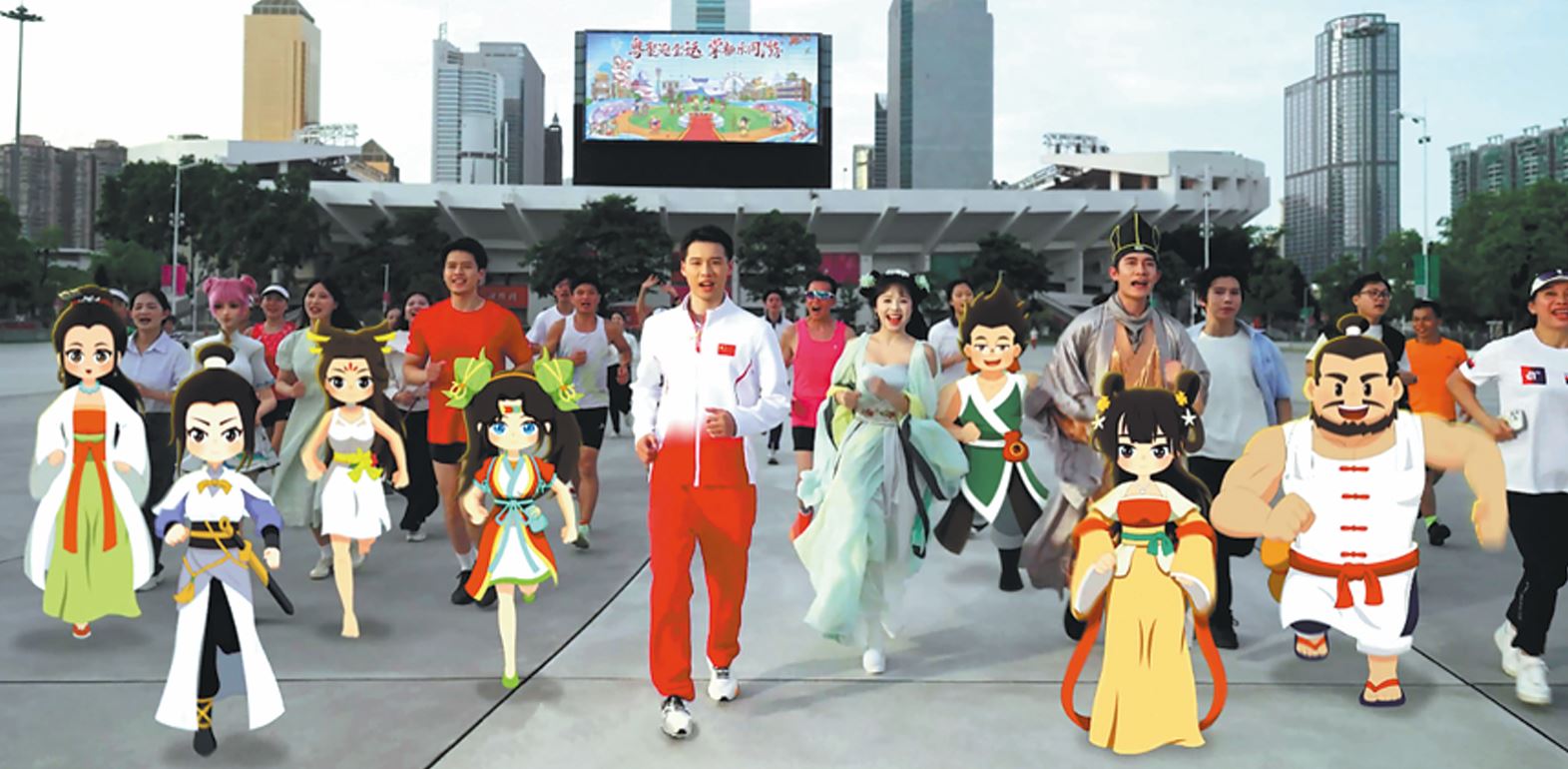
Dressed in traditional Song Dynasty (960-1279) attire, an animated character follows an Olympic diving champion through iconic Guangzhou landmarks. A merchant from the same era also appears, learning Wing Chun moves and the art of Cantonese noodle-making from intangible cultural heritage masters.
These scenes are from Guangzhou: Run with Luck, a promotional video for China’s 15th National Games — the country’s largest national sports event — held from Nov 9 to 21 in the Guangdong-Hong Kong-Macao Greater Bay Area.
This year marks the first time the games are jointly hosted across multiple regions, with competitions in 19 cities. To reflect this diversity, the video blends digital art, sports, and local culture, and has already garnered over 500,000 online views.
According to Cheng Lin, the project’s managing director, its concept revolves around the Chinese character yun, which symbolizes both “movement” and “good fortune”.
In addition to the video, Cheng’s team also launched a special edition of their ancient-style shop management game, where players can explore a Guangzhou-themed map, unlock local landmarks, and take part in virtual competitions such as diving and soccer.
“For us, the real value lies in participation,” Cheng said. “Games turn viewers into active participants. When young players share and discuss their experiences, sports culture begins to take root naturally.”
Liu Wei, a 30-year-old engineer who has worked in Guangzhou, Guangdong, for six years and is a passionate runner, described a similar sense of connection through running. “Once we stand together at the starting line, everyone shares the same identity and speaks the same language,” he said.
During a community warm-up run before the 15th National Games, Liu served as coordinator, managing communications with running groups from Hong Kong and Macao, while also overseeing event photography and news coverage.

As he captured the lively faces and moments of young people from all three regions on the track, one scene stayed with him: two runners — one from
Guangzhou and one from Hong Kong — happening to wear matching sports watches. They exchanged training tips, shared gear recommendations, and even made plans to visit each other’s cities to explore local running routes.
“Running is a natural conversation starter,” Liu said. “It creates an open and inclusive atmosphere. The bonds and understanding formed through sports are often genuine and lasting.”
Inspired by the connections built during the event, Liu and his fellow runners hope to carry it forward by establishing a Greater Bay Area youth sports alliance, where core sports associations from the three regions take turns organizing regular activities.
That same spirit of connection is also reflected in the story of Chan Yuen-tung, who is among the first group of Hong Kong youth to pursue career opportunities on the Chinese mainland under the Greater Bay Area Youth Employment Scheme, launched by the Hong Kong Special Administrative Region government in 2021.
Now a project manager at the Hong Kong think tank One Country Two Systems Youth Forum, Chan recently organized a “sports experience day” to coincide with the 15th National Games.
The event gave young participants a chance to try representative sports from different host cities: archery in Shenzhen, rock climbing in Guangzhou, and golf in Hong Kong. For many, these were activities they had never attempted before. “Rock climbing, for example, seems difficult at first, but many participants are surprised by what they can achieve,” Chan said.
ALSO READ: Historic National Games cycling race a testament to GBA integration
“I hope to play a small but meaningful role as a bridge, connecting youth across the Greater Bay Area,” she added.
Years of experience organizing youth programs has given Chan insights into the changing attitudes of Hong Kong and Macao students studying there.
“They are shifting from simply wanting to fit in to actively seeking a role in local development,” she said. “More and more students are exploring mainland policies and opportunities for work and entrepreneurship.”
New narrative
Jacky Ko Chung-kit, a Hong Kong native, is a volunteer for the 15th National Games. He is also vice-chairman of the Y.Elites Association — a youth professional network — and chairman of the KOL (Key Opinion Leader) Workers Association — an employee union for online influencers.
When he learned that the National Games would, for the first time, be hosted across three regions, he immediately decided to use his social media expertise to boost the games’ visibility and engagement.
Ko created videos that highlight the games’ digital innovations, from the mobile app’s automated seat navigation to drones and robots operating within venues. “When young people see these cutting-edge technologies in my videos, they’ll want to experience them firsthand,” Ko said.

He traveled extensively across Greater Bay Area cities for warm-up activities and led nearly 60 content creators on tours of National Games-themed routes in Hong Kong, including Kai Tak Sports Park, a key venue for the games. He also encouraged the creators to share footage with one another, maximizing exposure for venues and events that were previously lesser known.
According to Ko, the Hong Kong volunteer drive drew around 30,000 applicants, with roughly 17,000 selected — a scale he described as “unprecedented”.
As one of the volunteers, he wanted the world to see that the Greater Bay Area can host world-class competitions.
“At the 2008 Olympics, Hong Kong only hosted the equestrian events. This time, however, we’re a full-fledged host city — it feels completely different,” Ko said with excitement. “It shows Hong Kong’s deeper integration into the broader national development landscape.”
He believes that the interactions built through the games will continue long after the events end. “Young people will venture further — not just to a few popular cities, but to explore the Greater Bay Area more fully,” he said.


